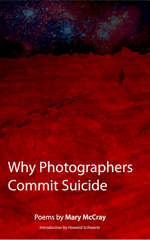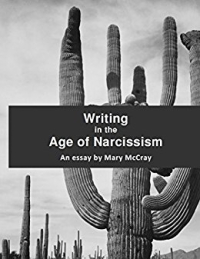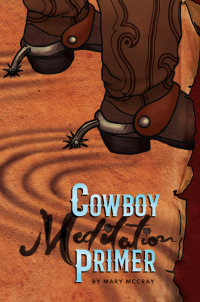I came upon this article recently, “Poems of Resistance: A Primer” in The New York Times and it talks about a “tsunami” of poems coming out right now, both new poetry and readers looking for political resistance poetry. Such an amazing time to be writing and reading. That article points to another piece, “American Poets, Refusing to Go Gentle, Rage Against the Right.” Also in January 2017, Poetry Foundation printed its list of favorite protest poems we should all work through.
I myself have purchased multiple volumes of political anthologies.
 If You Can Hear This: Poems in Protest of an American Inauguration (2017) – these are some hot-of-the press reactions to the Trumptastrophe by a diversity of writers including plenty of LGBT writers. I just finished it. It’s full of amazing poems. Some very dark, some very inspiring. Some of my favorites:
If You Can Hear This: Poems in Protest of an American Inauguration (2017) – these are some hot-of-the press reactions to the Trumptastrophe by a diversity of writers including plenty of LGBT writers. I just finished it. It’s full of amazing poems. Some very dark, some very inspiring. Some of my favorites:
H.K Hummel’s “A Brief History of the Leer”
“Pirate Jenny” by Erik Schuckers
Jeremy Brunger’s “Gay Sex Kills Fascism”
“Pigeon” by Isiah Vianese
And the final poem, “We Know How to Do This” by Mary E. Cronin
 Love Rise Up: Poems of Social Justice, Protest and Hope (2014) I just started this one and beyond some disconcerting typos, I’m amazed at how many poems are relevant and seem apropos of the current Trumptastrophe like “Seven-Hundred Mile Fence” by Eliot Khalil Wilson and “Lawrence Learns the Law” by Margaret Rozga, a poem that predates Black Lives Matter and media coverage of the black victims of police shootings but illustrates exactly the arrest issues that were occurring in Ferguson, Missouri. There are also “after-the-election" poems but they’re about Obama’s inauguration and serve to remind us of what that election meant. Trump not even a blip in the anthologies consciousness, although he had already been racist-ing it up in 2014 with his birther propaganda.
Love Rise Up: Poems of Social Justice, Protest and Hope (2014) I just started this one and beyond some disconcerting typos, I’m amazed at how many poems are relevant and seem apropos of the current Trumptastrophe like “Seven-Hundred Mile Fence” by Eliot Khalil Wilson and “Lawrence Learns the Law” by Margaret Rozga, a poem that predates Black Lives Matter and media coverage of the black victims of police shootings but illustrates exactly the arrest issues that were occurring in Ferguson, Missouri. There are also “after-the-election" poems but they’re about Obama’s inauguration and serve to remind us of what that election meant. Trump not even a blip in the anthologies consciousness, although he had already been racist-ing it up in 2014 with his birther propaganda.
 Speaking of Black Lives Matter, the beautiful anthology, Of Poetry and Protest: From Emmett Till to Trayvon Martin (2016) is an amazing book of art and poetry by contemporary black writers and artists. If you’re looking for a coffee table book on Black Lives Matter as signal to your right-wing friends and relatives, this is the book. I found many new poets in here I’d like to research more, like Thomas Sayer Ellis (“The Identity Repairman”), Reginald Harris (“New Rules of the Road”), Terrance Hayes (“Some Luminous Distress”), Major Jackson (“Rose Colored City”), Quraysh Ali Lansana (“statement on the killing of patrick dorismond”), Haryette Mullen (already on my radar but is represented here with “We Are Not Responsible”), Evie Shockley (“x markst the spot”) and Lamont B. Steptoe (“Such a Boat of Land”).
Speaking of Black Lives Matter, the beautiful anthology, Of Poetry and Protest: From Emmett Till to Trayvon Martin (2016) is an amazing book of art and poetry by contemporary black writers and artists. If you’re looking for a coffee table book on Black Lives Matter as signal to your right-wing friends and relatives, this is the book. I found many new poets in here I’d like to research more, like Thomas Sayer Ellis (“The Identity Repairman”), Reginald Harris (“New Rules of the Road”), Terrance Hayes (“Some Luminous Distress”), Major Jackson (“Rose Colored City”), Quraysh Ali Lansana (“statement on the killing of patrick dorismond”), Haryette Mullen (already on my radar but is represented here with “We Are Not Responsible”), Evie Shockley (“x markst the spot”) and Lamont B. Steptoe (“Such a Boat of Land”).
Also, don’t forget Claudia Rankine’s book Citizen and Ligatures by Denise Miller.
 Against Forgetting: 20th Century Poetry of Witness is an old standby, with over 700 pages of protest. This is literally the textbook on protest poetry but it can also serve as an international anthology. I’ve known about for a while but was never tempted to dive into it. Then I did a search recently for political poetry and I found a class in International Political Poetry from Portland Community College (unfortunately not available online) which listed the book in its syllabus. I’m reading it next.
Against Forgetting: 20th Century Poetry of Witness is an old standby, with over 700 pages of protest. This is literally the textbook on protest poetry but it can also serve as an international anthology. I’ve known about for a while but was never tempted to dive into it. Then I did a search recently for political poetry and I found a class in International Political Poetry from Portland Community College (unfortunately not available online) which listed the book in its syllabus. I’m reading it next.
It’s organized by categories of atrocity: Armenian Genocide poems, (watch for more on these poets in my Cher blog), World War I and II poems, Soviet Union revolution and repression poems, Spanish Civil War poems, Holocaust poems, repression in Eastern and Central Europe poems, dictatorship in the Mediterranean poems, Indio-Pakistani War poems, Middle East War poems, repression and revolution in Latin America poems, American civil rights and liberties poems, Korean and Vietnam War poems, African apartheid poems, and democracy in China poems.
 And there’s nothing like extreme right-wing wig-outs to send you into the arm of Warren Beatty and Reds. There were pros and cons of watching this movie again since the first time at 10 years old when my parents dragged me to it. It was much less boring this time. The old talking heads are hilarious now, completely contradicting each other and misremembering history. They aren’t the stodgy authority figures I remembered them to be. Jack Nicholson: his best performance IMHO. He totally inhabits playwright Eugene O’Neill. But on the other hand, I’m also not completely “in awe of the epic” as I once was. Beatty’s direction seems a bit too much like a Woody Allen rip off now, (note the outdoor walking-and-talking scenes particularly).
And there’s nothing like extreme right-wing wig-outs to send you into the arm of Warren Beatty and Reds. There were pros and cons of watching this movie again since the first time at 10 years old when my parents dragged me to it. It was much less boring this time. The old talking heads are hilarious now, completely contradicting each other and misremembering history. They aren’t the stodgy authority figures I remembered them to be. Jack Nicholson: his best performance IMHO. He totally inhabits playwright Eugene O’Neill. But on the other hand, I’m also not completely “in awe of the epic” as I once was. Beatty’s direction seems a bit too much like a Woody Allen rip off now, (note the outdoor walking-and-talking scenes particularly).
 I love to watch movies about writers, especially if there are scenes of them actually trying to write. Beatty, as journalist John Reed, does have scenes struggling over writing and editing, critiquing Louise Bryant’s writing (which she doesn't handle well), debating ideas (almost as much fun to watch as actual writing). There was a journalism poem recited in the movie I started looking for. I tracked down the book The Complete Poetry of John Reed. It was disappointing. His poems are amateurish and oddly un-political. “America 1918” is mostly a Whitman redux. Reed was a famous journalist and although he’s often listed as a poet, his complete works are literally only 60 pages. There’s a good poem on Manhattan. The movie Reds references two of his poems: “This Magazine of Ours” about his work for the communist magazine the Masses but it’s a frustrating read with too much abstractness about ultimate truth. The other poem referenced is his final poem before his early death, “A Letter to Louise.”
I love to watch movies about writers, especially if there are scenes of them actually trying to write. Beatty, as journalist John Reed, does have scenes struggling over writing and editing, critiquing Louise Bryant’s writing (which she doesn't handle well), debating ideas (almost as much fun to watch as actual writing). There was a journalism poem recited in the movie I started looking for. I tracked down the book The Complete Poetry of John Reed. It was disappointing. His poems are amateurish and oddly un-political. “America 1918” is mostly a Whitman redux. Reed was a famous journalist and although he’s often listed as a poet, his complete works are literally only 60 pages. There’s a good poem on Manhattan. The movie Reds references two of his poems: “This Magazine of Ours” about his work for the communist magazine the Masses but it’s a frustrating read with too much abstractness about ultimate truth. The other poem referenced is his final poem before his early death, “A Letter to Louise.”
Other new resistance and protest poetry anthologies are coming out as we speak!
Poems for Political Disaster (Chapbook)
Resistance, Rebellion, Life (Out May 23)














 "
"






